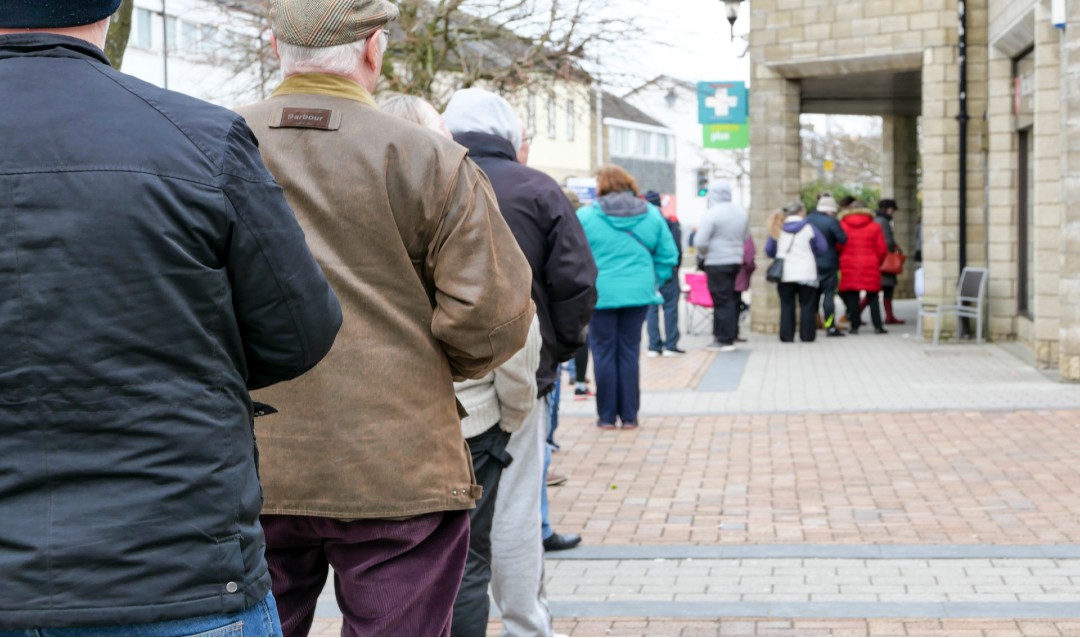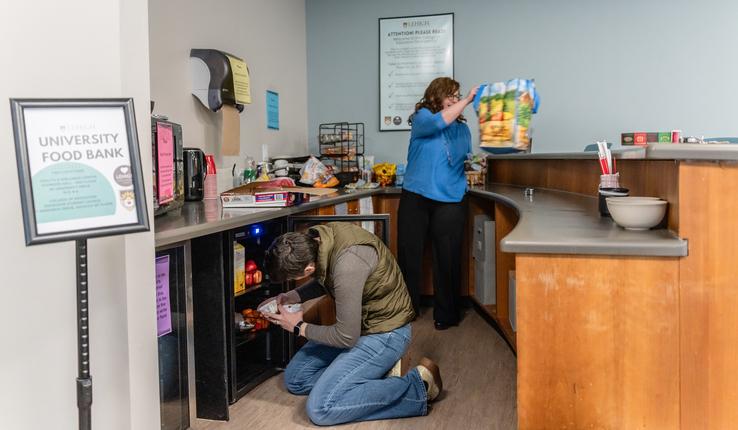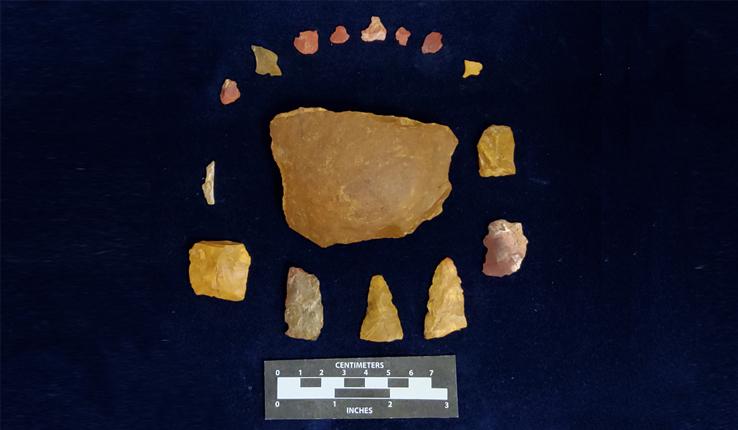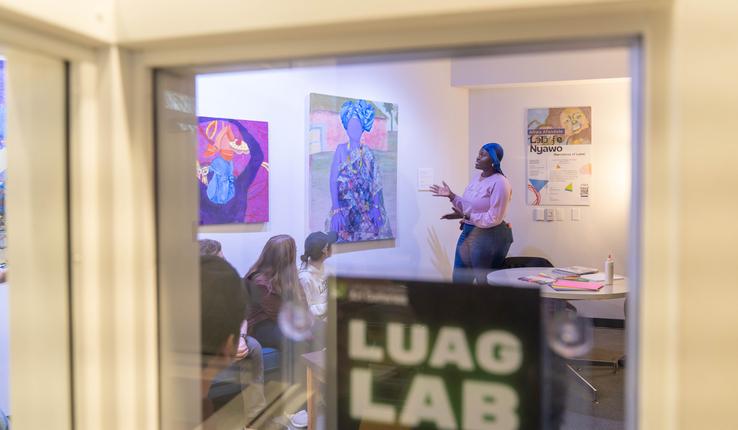The Lehigh Valley has been harder hit by COVID-19 than Pennsylvania as a whole. Understanding the factors contributing to pandemic-related health outcomes in the Lehigh Valley is important for improving prevention and treatment efforts, and could lead to more effective health policies in the region, the state and the nation.
In a multi-phased study, a group of Lehigh researchers will be the first and only group to examine the physical and mental health impacts of the COVID-19 pandemic on the Lehigh Valley community. Outcomes of the community-focused study will influence a second phase of the team’s work: a nationwide survey from which insights will be gleaned to inform policies and programs. The project received support from a Lehigh University Fast Track Summer 2020 Research Grant.
The community study will focus on vulnerable populations, including racial/ethnic minorities, the elderly, pregnant women, those with chronic physical and mental health conditions, those raising children with special needs, low-income families and essential service workers who support these vulnerable groups.
“We have already observed that the pandemic has shed light on existing health inequities at the community, state, and national levels and has further deepened these inequities,” said Fathima Wakeel, associate professor in Lehigh’s College of Health and the study lead. “Though community and state public health, medical, and human service organizations have mobilized quickly to address the epidemic, it is likely that these inequities may further worsen as the epidemic continues to sweep the region, the state and the country.”
Among the study’s aims is to better understand how potential predictors of health are related to both the positive and negative physical and mental health impacts of the COVID-19 pandemic among residents. Some of these predictors include: demographic characteristics, individual and family health status prior to the pandemic, pandemic-induced economic and social stressors and life events and ability to follow social distancing guidelines.
Wakeel says she has always been interested in community health and community-based research. She completed her Ph.D. in the Department of Community Health Sciences at the UCLA School of Public Health and has been deeply engaged in community health work throughout her career.
“When we were hit with the COVID-19 pandemic, I thought, what better way to make an impact on the Lehigh Valley community as an academic partner than to conduct research within the community, and through the community―by recruiting respondents through community organizations, for example―about the current health impacts of COVID-19 among residents?” says Wakeel. “I am excited to be able to disseminate our research findings with community stakeholders in order to inform their response to the epidemic.”
In preparation for this multi-phase COVID-19 study, Wakeel collected pilot data by conducting interviews with leaders of community stakeholder organizations. Most organizations reported being able to retain their workforces and provide many services remotely to the communities they serve. However, many expressed fear that funding, and therefore, services, may be drastically reduced in the 2020- 2021 fiscal year.
Some community leaders pointed to current public health infrastructure as an obstacle to a coordinated community effort to serve communities in need during the pandemic. Many interviewees cited homelessness, food insecurity and mental health as top priorities that have been exacerbated by COVID-19 and the response to it.
“Community leaders overwhelmingly cited how quickly local organizations, businesses and residents adapted to changes induced by the pandemic,” says Wakeel. “And, they consistently emphasized the collaborative nature of how organizations mobilized to respond to community needs through efforts such as donating supplies, fundraising, and volunteering.”
A Multi-Disciplinary Project
To gather data for the community study, the research team will administer an online survey of participants recruited through numerous regional service organizations. Semi-structured interviews with select participants via Zoom will follow. The design of the national survey will be informed by data gathered during the community study and will involve an online survey of a representative sample of respondents throughout the U.S.
Each of the two research teams led by Wakeel spans all five colleges and includes a diverse array of expertise important to the success of the project, including epidemiology; mental health; community health; maternal and child health; health communication; health psychology; social psychology; trauma-informed human services; operations research; and healthcare systems engineering. In addition to Wakeel, the community study team includes Eric P. S. Baumer, Computer Science and Engineering; Haiyan Jia, Journalism and Communication; Christopher Liang, Education & Human Services; Patricia Manz, Education & Human Services; Lucy Napper, Psychology; Karmel S. Shehadeh, Industrial Systems Engineering; and, Rebecca Wang, Marketing. The national study team includes Lifang He, Computer Science and Engineering; Wei-Min Huang, Mathematics and Brook Sawyer, Teacher Education; as well as Jia, Liang, Manz, Napper, Shehadeh, Wakeel and Wang.
“Population health is essentially a convergence science, and it has been a dream come true to see scholars from multiple disciplines coming together to address a common topic of interest, examine it from different perspectives, and reach decisions that reflect our combined expertise and experiences,” says Wakeel.
Among the topics the team will explore are the nature, frequency, and methods of communication among individuals, peer groups, and community organizations in the Lehigh Valley. Researchers will also investigate the impact of such communication on perceptions of and behaviors related to the COVID-19 pandemic. They will examine the format and effectiveness of communication between health care providers and those in need of medical care as well.
Communicating the findings to stakeholders is an essential component of the impact-driven project. Data from the community study will be presented to local organizations with the goal of informing programmatic and policy interventions, such as developing a more coordinated response to the pandemic. In addition, findings from the nationwide study may provide preliminary data for future Pennsylvania-specific research.
“We hope to have initial actionable data by the end of 2020,” says Wakeel. “Ideally, we would like to collaborate with community organizations to engage in various forms of data storytelling in order to present our findings back to the community.”
The results of the study are expected to provide novel insights into the mechanisms by which potential predictors of health are related to the short-term positive and adverse impacts of the COVID-19 pandemic on the Lehigh Valley community as well as the longer-term impacts at the state and national levels.





